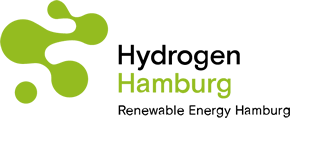Details
Hydrogen industry cluster agency in South Korea What do South Korea and Northern Germany have in common?
With its own hydrogen strategy and various planned hydrogen industry clusters, South Korea is making its ambitions as a hydrogen location clear – just like North Germany.

With its own hydrogen strategy and various planned hydrogen industry clusters, South Korea is making its ambitions as a hydrogen location clear – just like North Germany. In line with this, a South Korean-North German workshop on green hydrogen took place on 20 October, featuring projects from both sides.
South Korea already had a “Hydrogen Economy Roadmap” back in January 2019 with targets announced for the years 2022 and 2040. For example, by 2040 over 6 million fuel cell vehicles are to be produced and more than half of these will in turn be exported, while the number of hydrogen buses should grow to more than 40,000. At the same time, around 1,200 hydrogen filling stations are to be built by 2040. For the energy sector, the roadmap sets the goal of providing fuel cells with a capacity of 15 GW for power generation by 2040.
Five hydrogen industry clusters
In August 2021, the South Korean government announced that it would provide more than one billion US dollars to build a total of five hydrogen industry clusters and related infrastructure across the country. The South Korean Ministry of Trade, Industry and Energy has formed the following thematic clusters for this purpose:
- Production of green hydrogen in the North Jeolla Province
- Production of blue hydrogen in Incheon
- Hydrogen storage and transport in the Gangwon Province
- Hydrogen mobility in Ulsan
- Hydrogen and fuel cells in the North Gyeongsang Province
In the North Jeolla Province, the South Korean centre for solar energy, an electrolysis plant for the production of green hydrogen is to be built, which will be supplied with electricity from a solar park with a capacity of 100 MW. Whereas in the port and industrial city of Incheon, located near the capital Seoul, blue hydrogen is to be produced using fossil energy sources. In the Cluster Agency in the North-West Province of Gangwon, which was designated a special regulation-free zone for liquefied hydrogen, technologies for storing and transporting hydrogen, e.g. with a hydrogen liquefaction plant, are to be tested. In Ulsan, where the Hyundai Group is located, the ministry want to establish a technology centre for hydrogen vehicles and hydrogen-powered construction machinery and industrial equipment. The North Gyeongsang Province is to be home to an institute that will work on the certification of hydrogen and the quality assurance of fuel cells.


